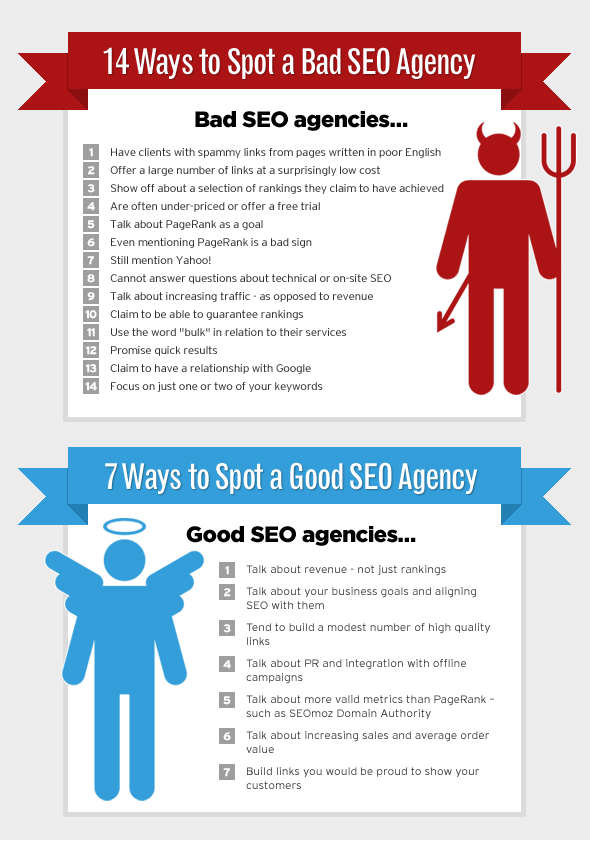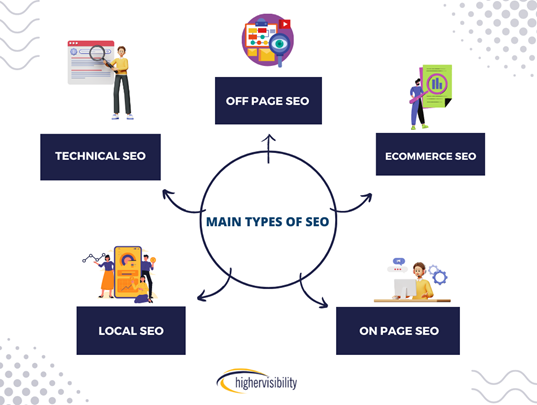Uncover the secrets of successful SEO client management with these expert tips for ensuring long-term success in your business.

Image courtesy of via DALL-E 3
Table of Contents
Welcome to our guide on how to manage SEO clients for long-term success. In this article, we will explore the world of SEO, clients, and why effective management is key to achieving lasting results. Let’s dive in and discover why understanding and supporting clients in their SEO journey is crucial for both their success and yours.
What is SEO?
SEO stands for Search Engine Optimization. It’s like a magic spell that helps websites become more visible on search engines like Google. When someone searches for something online, SEO helps websites appear at the top of the search results so more people can visit them.
Why Do Clients Need SEO?
Businesses hire experts in SEO because they want their websites to be seen by as many people as possible. Imagine having a shop with amazing products, but if it’s hidden in a dark alley, no one will know about it. SEO helps businesses shine bright in the online world.
Understanding Client Needs
Asking the Right Questions
When working with clients on their SEO projects, it’s crucial to ask the right questions to understand their needs better. Simple questions like “What are your main goals for your website?” or “Who is your target audience?” can provide valuable insights into what the client is looking to achieve. By asking these questions, you can tailor your SEO strategies to meet their specific requirements.
Listening to Clients
Listening attentively to your clients is key to providing them with the best possible service. When clients share their thoughts, concerns, and objectives, it’s essential to pay close attention and take note of their feedback. By actively listening, you can gain a deeper understanding of their needs and preferences, allowing you to deliver results that align with their expectations.
Setting Clear Goals
When you start working with a client on their SEO project, it’s crucial to establish clear goals from the beginning. This helps everyone involved understand what to expect and ensures that you are all working towards the same objectives.
Defining Objectives
Setting objectives means deciding on the main goals for the SEO project. These goals should be specific, measurable, achievable, relevant, and time-bound (SMART). For example, an objective could be to increase website traffic by 30% in the next six months. By defining clear objectives, you give yourself and your client a roadmap to follow throughout the project.
Measuring Success
Once you’ve established your objectives, it’s essential to have measures in place to track and evaluate the success of the project. This could involve monitoring website traffic, keyword rankings, conversion rates, or other key performance indicators (KPIs) that align with your goals. By regularly measuring and analyzing these metrics, you can determine if the project is on track and make adjustments as needed to ensure success.
Creating an SEO Strategy
In order to help your clients achieve success with their websites, it’s essential to create a solid SEO strategy. This involves careful planning and implementation to ensure that the goals set with the client are met. Let’s dive into two key components of creating an effective SEO strategy:

Image courtesy of firstpagesage.com via Google Images
Keyword Research
One of the first steps in crafting an SEO strategy is conducting thorough keyword research. Keywords are the words and phrases that people type into search engines when looking for information. By identifying the right keywords for your client’s business, you can optimize their website to attract relevant traffic. Here are some tips for effective keyword research:
– Use tools like Google Keyword Planner or SEMrush to find relevant keywords with high search volumes.
– Consider the competition for each keyword and choose ones that are achievable for your client’s website.
– Incorporate a mix of short-tail and long-tail keywords to target different types of search queries.
– Regularly review and update your keyword strategy to stay ahead of changing trends and search patterns.
Content Creation
Once you have identified the right keywords, the next step is to create high-quality, relevant content for your client’s website. Content plays a crucial role in SEO, as search engines favor websites that provide valuable information to users. Here are some tips for creating SEO-friendly content:
– Ensure that your content is well-written, engaging, and free of grammatical errors.
– Incorporate the targeted keywords naturally throughout the content to improve its visibility in search results.
– Use headings, subheadings, and bullet points to make your content easy to read and navigate.
– Regularly update and refresh your content to keep it current and appealing to both visitors and search engines.
By focusing on keyword research and content creation, you can lay the foundation for a successful SEO strategy that helps your clients achieve their online goals. Remember to continuously monitor and adjust your strategy based on performance data to ensure long-term success.
Ongoing Communication
When you’re working on improving a website’s SEO, it’s essential to keep the client informed about the progress being made. By providing regular updates, you can show them that their project is a priority and that you are actively working towards their goals. These updates can include information about keyword research, content creation, and any changes being made to the website.
Getting Feedback
Feedback from clients is incredibly valuable in ensuring that the SEO project is on the right track. By asking for their thoughts and opinions, you can gather insights into what is working well and what could be improved. This feedback allows you to tailor your strategies to better meet their needs and expectations, ultimately leading to a more successful outcome for the project.
Reporting and Analysis
As you work on improving a website’s SEO, it’s important to keep track of the progress and understand how well your strategies are working. Reporting and analysis play a crucial role in showing clients the results of your hard work. By providing regular reports and interpreting the data effectively, you can keep clients informed and engaged in the process.

Image courtesy of www.digivate.com via Google Images
Regular Reports
Regular reports are like progress reports that show clients how their website is performing in terms of SEO. These reports typically include important metrics such as website traffic, keyword rankings, and any changes implemented. By sharing these reports with clients on a consistent basis, you can keep them informed about the impact of your work.
Interpreting Data
Interpreting the data in reports is crucial for helping clients understand the progress of their SEO project. It’s important to explain what the numbers mean in a clear and simple way, highlighting the positive outcomes and addressing any areas that may need improvement. By translating this data into meaningful insights, you can build trust with your clients and demonstrate the value of your efforts.
Managing Expectations
In the world of SEO, managing expectations is crucial for a successful project. Let’s dive into how setting realistic goals and maintaining transparent communication can help ensure a positive experience for both you and your clients.
Setting Realistic Goals
When working with clients on an SEO project, it’s important to help them set goals that are achievable and realistic. This means understanding their business needs and objectives to tailor the SEO strategy accordingly. By setting clear and measurable goals, both you and your client will have a roadmap to follow throughout the project.
Transparent Communication
Transparency is key in managing client expectations. By being honest and clear in your communication, you build trust with your clients and create a strong foundation for your working relationship. Keeping clients informed about the progress of the SEO work, any challenges faced, and potential setbacks helps manage their expectations and demonstrates your commitment to their success.
Building Long-Term Relationships
In the world of SEO, building long-term relationships with your clients is key to ensuring the success of your projects. Strong relationships built on trust and understanding can lead to repeat business and positive referrals. Here are some tips on how to maintain those lasting connections:

Image courtesy of www.highervisibility.com via Google Images
Providing Ongoing Support
Once you’ve helped a client achieve their initial SEO goals, it’s essential to continue providing support. SEO is not a one-time task but an ongoing process that requires monitoring and adjustments. By offering ongoing support, you can ensure that your client’s website stays optimized and keeps seeing positive results.
Showing Appreciation
Showing appreciation to your clients is a great way to strengthen your relationship. Simple gestures like sending thank-you notes, offering discounts on future services, or even just checking in to see how they’re doing can go a long way in building trust and loyalty. When clients feel appreciated, they are more likely to stick with you for the long haul.
Conclusion
In this article, we have covered important tips on how to manage SEO clients for long-term success. By understanding the core elements of SEO, listening to client needs, setting clear goals, creating an effective strategy, maintaining ongoing communication, providing regular reports and analysis, managing expectations, and building strong relationships, you can ensure a successful SEO project.
Remember, the key to successful client management in SEO lies in clear communication, setting realistic goals, and providing continuous support. By following these guidelines, you can foster long-lasting relationships with clients and achieve sustainable success in the ever-evolving realm of search engine optimization.
Want to turn these SEO insights into real results? Seorocket is an all-in-one AI SEO solution that uses the power of AI to analyze your competition and craft high-ranking content.
Seorocket offers a suite of powerful tools, including a Keyword Researcher to find the most profitable keywords, an AI Writer to generate unique and Google-friendly content, and an Automatic Publisher to schedule and publish your content directly to your website. Plus, you’ll get real-time performance tracking so you can see exactly what’s working and make adjustments as needed.
Stop just reading about SEO – take action with Seorocket and skyrocket your search rankings today. Sign up for a free trial and see the difference Seorocket can make for your website!
Frequently Asked Questions (FAQs)
How do you deal with difficult clients?
Dealing with difficult clients can be challenging, but it’s important to remain calm and professional. Here are some tips to help you manage:
1. Listen: First and foremost, listen to your client’s concerns and try to understand where they’re coming from.
2. Communication: Keep the lines of communication open and be transparent about your process and the work being done.
3. Set Boundaries: Clearly define expectations and boundaries from the beginning to avoid misunderstandings.
4. Offer Solutions: Propose solutions or alternatives that address the client’s concerns while still aligning with the project goals.
What if a client’s goals change?
It’s not uncommon for client goals to change throughout the course of a project. Here’s how you can handle a situation where a client’s goals shift:
1. Open Communication: Have an open and honest conversation with the client to understand the reasons behind the goal change.
2. Reassess: Reassess the project objectives and determine if the new goals are achievable and align with the overall strategy.
3. Adjustment: Make adjustments to the SEO strategy and implementation plan to accommodate the new goals while ensuring they are realistic and measurable.
4. Documentation: Document the changes in writing to ensure clarity and alignment between all parties involved.







